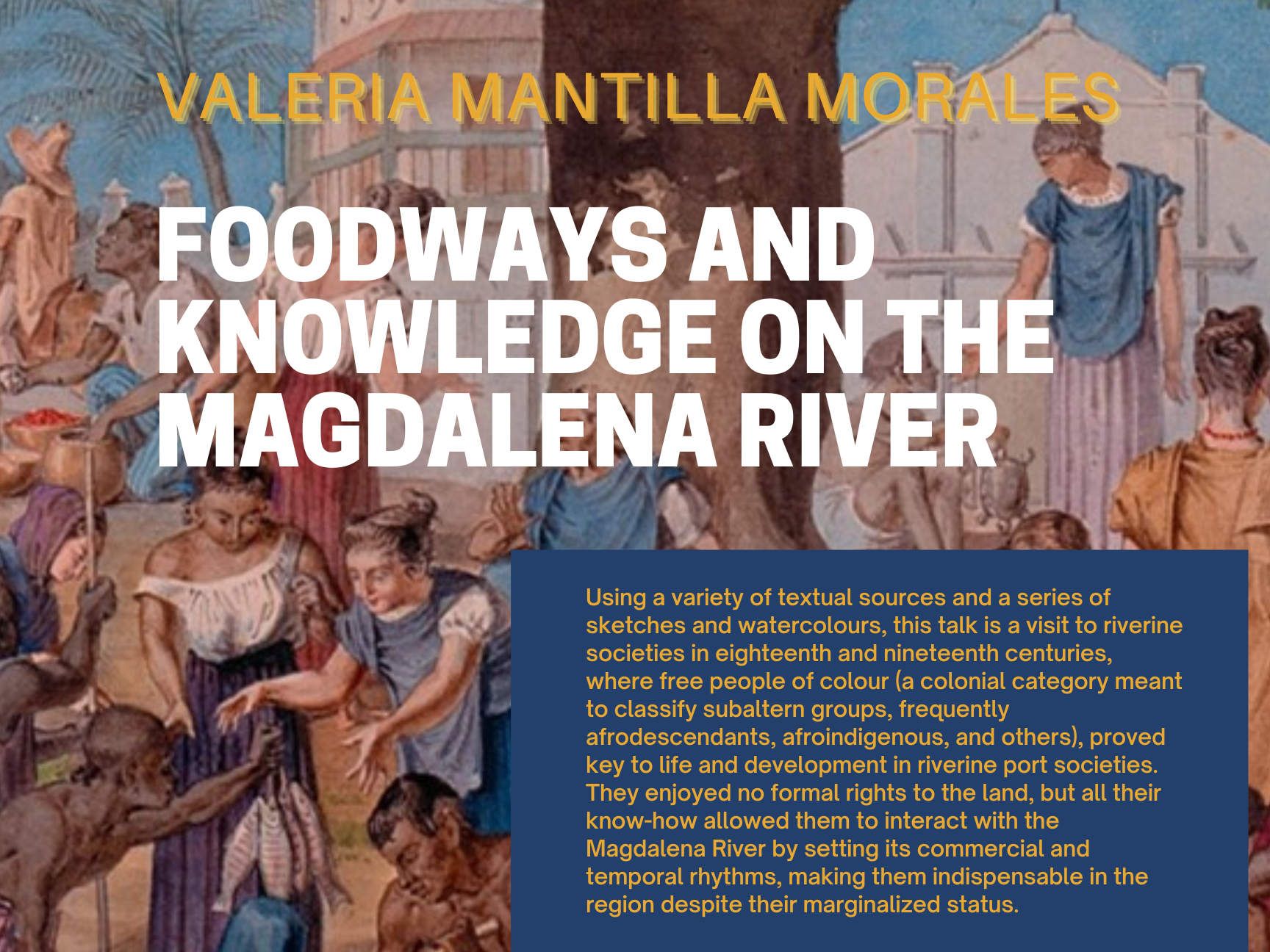
Please join us in welcoming a Culinaria Graduate Fellow and PhD Candidate in the Collaborative Specialization in Food Studies program, Valeria Mantilla Morales, in this next session of the Culinaria Annual Speakers Series.
This event will be held as a hybrid session, with 30 in-person tickets available on a first-come-first serve basis. Unlimited virtual tickets are available and the Zoom link will be provided on all ticket receipts in addition to the in-person location. Please confirm in-person or virtual attendance on the registration page.
The Magdalena River is one of Colombia’s most important fluvial networks, serving as a home and a waterway for populations, goods, and food. It nourishes so much of Colombian life that anthropologist Germán Ferro describes it as a “river-world” [río-mundo], the same river-world that inspired writer Gabriel García Márquez’s nostalgic visions in Love in the Time of Cholera. Using a variety of textual sources and a series of sketches and watercolours, this talk is a visit to riverine societies in eighteenth and nineteenth centuries, where free people of colour (a colonial category meant to classify subaltern groups, frequently afrodescendants, afroindigenous, and others), proved key to life and development in riverine port societies. They served as boatmen to transport food and goods (ranging from plantains to pianos), and they took part of the river’s commercial networks by developing cultivation and cattle ranching economies. They also possessed a kind of experiential knowledge that made them amphibians in local lore, expertly fighting caymans, catching catfish, and finding turtle eggs for consumption. Free people of colour enjoyed no formal rights to the land, but all their know-how allowed them to interact with the Magdalena River by setting its commercial and temporal rhythms, making them indispensable in the region despite their marginalized status.
Valeria Mantilla Morales is a doctoral candidate in the Department of History at the University of Toronto and a current Graduate Fellow at the Culinaria Research Centre. Her dissertation project focuses on free people of colour’s contributions to diets, commerce, and culture along the Magdalena River of Colombia during the late colonial and early republican periods. Her teaching and research interests cover food and empire, environmental history, and histories of free African and afrodescendants in Latin America.
Her research has been supported by the Culinaria Research Centre, the Social Science and Humanities Research Council, and the Ontario Graduate Scholarship. She is grateful for their support of archival research for this project.